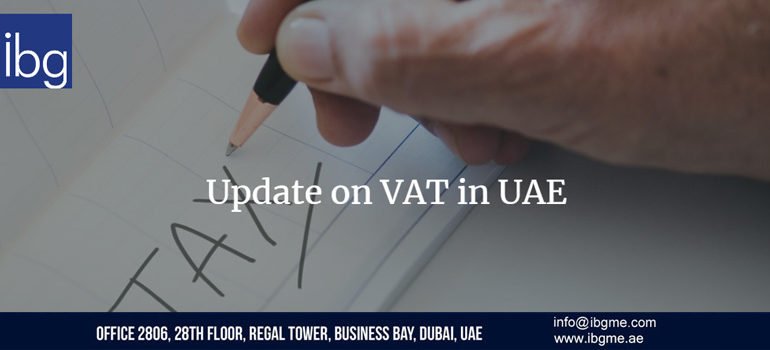

Value-added tax (VAT) in UAE was implemented in full effect from January 1st, 2018 after its announcement in February last year. At a fixed rate of 5%, the tax will apply to the selling and purchase of products and services in UAE and GCC countries. Businesses in the prescribed minimum earning threshold will be required to register for VAT, while business consultancy agencies will act as government agents to ensure VAT compliance between merchants.
The tax will serve as a passive source of revenue, reinforcing UAE’s vision 2021 to further minimize fossil fuel and hydrocarbon dependence on its economy.
The UAE government also announced the terms for fines ranging from AED 3000 to AED 50,000 as result of delay or non-compliance in VAT registration.
However, to help businesses register with VAT and continue operations in UAE, the Federal Tax Authority (FTA) made its decision to suspend administrative penalty of Dh20,000, given the business is able to register before 30th of April 2018. The time-extension will facilitate businesses to carefully document their business income, costs and charges associated with VAT.
Recently, FTA also stepped in to officially issue a clarification regarding the eligibility of VAT on certain annually contracted services, particularly those paid full of 2018 before the implementation of VAT in UAE. In such cases, where businesses or consumers paid for services that commenced from the year 2018 beforehand, VAT liability pertaining to such contracts will be determined by a clause that states the amount is “exclusive” of tax. If the clause stipulating these terms is absent from the contract, then the merchant cannot charge VAT, or gain any further settlement from the business or consumer.
The announcement came shortly after disputes regarding VAT liability were brought into the light of acting Director of Consumer Protection at Dubai Economy, Ahmad Al Zaabi.
In a statement from January, Mr Al Zaabi said, “The agreement should state that the fee applicable does not include VAT or any of the tax concerned, and also specify that the merchant reserves the right to charge VAT or any other tax that may be implemented in the country at any point during the agreement period,”
Another major update shared by FTA and the Dubai Land Department (DLD) was regarding UAE’s property sector. According to terms classified by FTA, the sale of leased commercial property will not be taxed since it is not considered supply during the sale process. In an assessment by DLD, nearly 85% of UAE’s property components are not subject to VAT. According to the terms applicable through VAT reform, tax will be levied only on the leasing of commercial property or the sale of vacant commercial property.
Sharing a review on UAE’ vast property market, The Director-General of DLD, Sultan Butti bin Mejren stated, “When reviewing the details of sales, rents and other transactions, we found that the value of bare land sales, residential properties, and occupied commercial and retail properties comprise the largest percentage of total properties traded during 2017.
Khalid Ali Al Bustani, Director-General of FTA further explained how investors and owners of residential properties are exempted from tax within first 3 years of supplying residential building.
He said, “The Federal Decree-Law No. 8 of 2017 on value-added tax and its Executive Regulation provide several mechanisms to ensure the continued competitiveness of the real estate sector.
Moreover, VAT is not just a tax reform to boost UAE’s economy, it serves as a legal tool to stimulate transparency by fundamentally improving how businesses operate in UAE. The region-wide implementation will see stable returns, complimenting UAE’s non-oil GDP by 1.5% and making room for over 5000 jobs.
